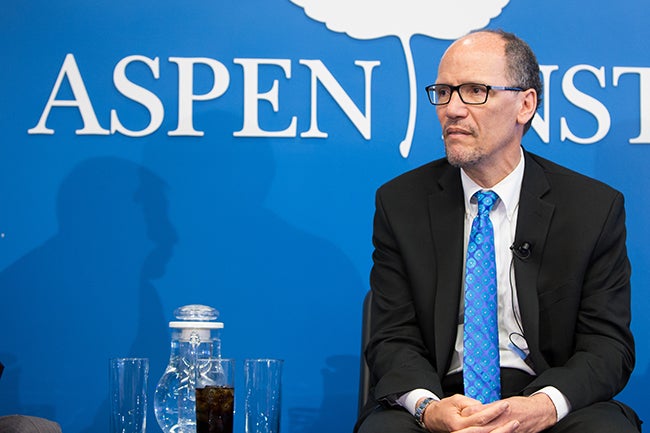Arguing that Washington is broken, Democratic Virginia Governor Terry McAuliffe said it’s imperative that his party focuses more on state and local races.
“My job as a governor is to create jobs,” McAuliffe said, pointing out that Virginia’s unemployment rate has fallen from 5.4 percent to 3.7 percent during his tenure. Cyber jobs and trade, particularly with Asia prior to the US pulling out of the Trans-Pacific Partnership, have bolstered his state’s economy in recent years.
McAuliffe also railed against Congress’s inability to balance a budget. “At the end of the day, people want results from us,” he said. “They’re tired of the political posturing. I have a very Republican legislature, and yet they work with me on economic development, even though we disagree violently on social issues.”
However, he had a very different take on the political balance of power across the country’s governorships. With Republicans in control of the executive branch of 34 states — the highest in history — and having gained 960 state legislature seats in the most recent election, the consequences for the future of American democracy could be dire, McAuliffe warned.
Since redistricting is primarily the responsibility of state legislatures, and the majority party generally controls the process, at this rate Republican-held governments could dominate the redrawing of congressional and legislative districts after the 2020 census, McAuliffe said. This would make them even more favorable to Republican candidates. He added that Republicans have been going from state to state working on this while Democrats have “dropped the ball — [they’re] too interested in the presidency and not state and local candidates. And the effect has been devastating.”
Republican-controlled local and state governments are “ripping rights away” from women, low-income residents, and minorities, said McAuliffe, who has pledged to continue working on gerrymandering after his single term expires at the end of the year. He called Democratic House Minority Leader Nancy Pelosi the day after the 2016 election, “and I said, I don’t care how much money you have, if these lines get drawn so we can’t win elections, it doesn’t matter.”
It’s important to have the party split of governorships closer to 50-50, and for both parties to have general election opponents (another declining trend), McAuliffe said, because competition is much healthier for democracy.


